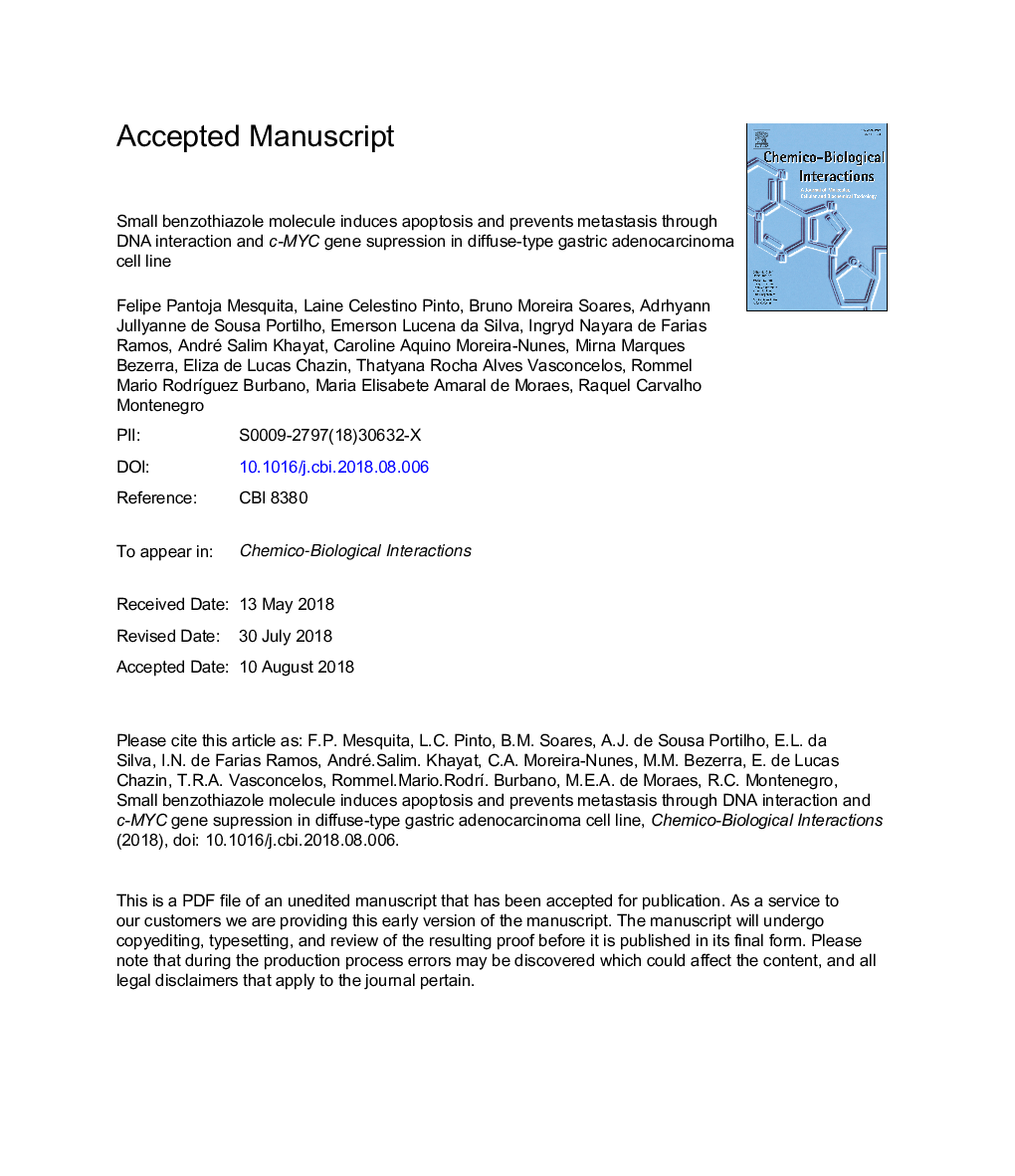| Article ID | Journal | Published Year | Pages | File Type |
|---|---|---|---|---|
| 10137685 | Chemico-Biological Interactions | 2018 | 39 Pages |
Abstract
Chemo-resistance has been reported as a relevant barrier for the efficiency of gastric cancer treatment. Therefore, the development of effective and safe drugs for cancer chemotherapy is still a challenge. The purpose of this study was to evaluate the anticancer potential of (E)-2-(((2-(benzo[d]thiazo-2-yl)hydrazono)methyl)-4-nitrophenol) (AFN01) against gastric cancer cell lines. Our results showed promising anticancer activity against gastric cancer cells ACP-02 (IC50â¯=â¯1.0â¯Î¼M) and mild activity against other cell lines including non-malignant gastric cell MNP-01 (IC50â¯=â¯3.4â¯Î¼M). This compound significantly induced S phase cell cycle arrest, prevented cell migration and triggered apoptosis in a concentration-dependent manner. Moreover, AFN01 was significantly more genotoxic against tumoral cell ACP-02, when compared to non-malignant cells, such as MNP-01 and healthy peripheral mononuclear blood cells. AFN01 also synergistically interacts with doxorubicin suppressing cell proliferation and c-MYC gene expression in gastric cancer cell line model, with remarkable c-MYC overexpression. Although further pre-clinical and clinical studies are required to explore its safety and efficiency, AFN01 may represent a promising lead anticancer agent for the treatment of gastric cancer.
Related Topics
Life Sciences
Environmental Science
Health, Toxicology and Mutagenesis
Authors
Felipe Pantoja Mesquita, Laine Celestino Pinto, Bruno Moreira Soares, Adrhyann Jullyanne de Sousa Portilho, Emerson Lucena da Silva, Ingryd Nayara de Farias Ramos, André Salim Khayat, Caroline Aquino Moreira-Nunes, Mirna Marques Bezerra,
